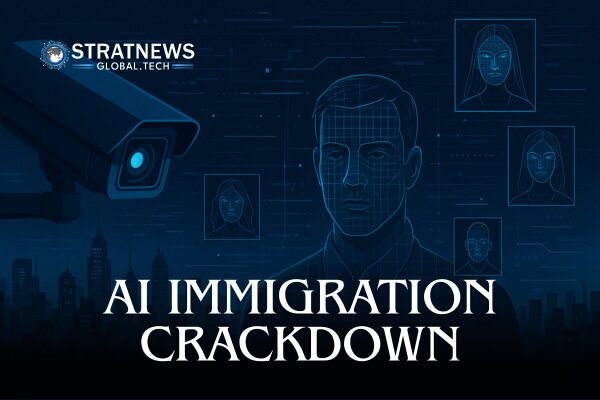AI Surveillance Raises Privacy Fears as US Targets Immigrants Under Trump
The United States, under President Donald Trump, is intensifying its use of AI surveillance technologies to track, detain, and deport immigrants. Digital rights advocates warn that these measures, which now cover a broader population, risk major violations of privacy and civil rights.
Expanding AI Tools to Target Immigrants
Immigration authorities are increasingly relying on AI tools like facial recognition scanners in public spaces and robotic patrols at the southern border. These tools, some in place for years, now have a much wider scope, according to Saira Hussain from the Electronic Frontier Foundation.
New programs also involve private contractors like Babel Street, which collect personal information from immigrants’ social media accounts. Agencies such as the Department of Homeland Security (DHS) and U.S. Customs and Border Protection (CBP) use this data to track movements, build family trees, and issue arrest warrants.
‘Catch and Revoke’ Program Targets Public Speech
One of the most controversial initiatives is the new “Catch and Revoke” programme, introduced in March by Secretary of State Marco Rubio. This uses AI to monitor public statements by foreign nationals, especially student visa holders, for any support of designated terrorist groups like Hamas.
According to Rubio, more than 300 individuals have already had their visas revoked under this programme. “If they’re acting against our national interest, we’ll revoke the visa,” he said during a March 28 press conference.
AI Surveillance Accuracy and Civil Rights Concerns Mount
Rights advocates highlight the risk of AI “hallucinations”—fabricated outputs that appear real but are incorrect. Such flaws, they argue, are dangerous when used to make arrest or deportation decisions.
Cases of mistaken arrests, like Jonathan Guerrero in Philadelphia and Jensy Machado in Virginia—both U.S. citizens—demonstrate the potential for grave errors. These arrests were later reversed, but they underscore the risks of relying on faulty or misapplied data.
The return of “Rapid DNA testing,” mentioned in a January executive order, adds to concerns about the unchecked use of controversial technologies.
Wider Surveillance Reaches All Americans
Surveillance under these programmes extends beyond immigrants. Georgetown University research in 2021 revealed that ICE can access the driver’s license data and utility records of three in four U.S. adults.
This data is fed into algorithms that determine detention, release conditions, or surveillance terms. Experts warn that this broad data collection impacts entire households, workplaces, and communities—not just targeted individuals.
Under expanded 287(g) agreements, local police departments are now deputised to act as federal immigration agents. This means local law enforcement can access federal AI systems and the data they collect, significantly widening the dragnet.
Digital rights expert Hussain warned, “The feds have their technology, and locals have their technology… there’ll be a lot of sharing of that information.”
with inputs from Reuters


